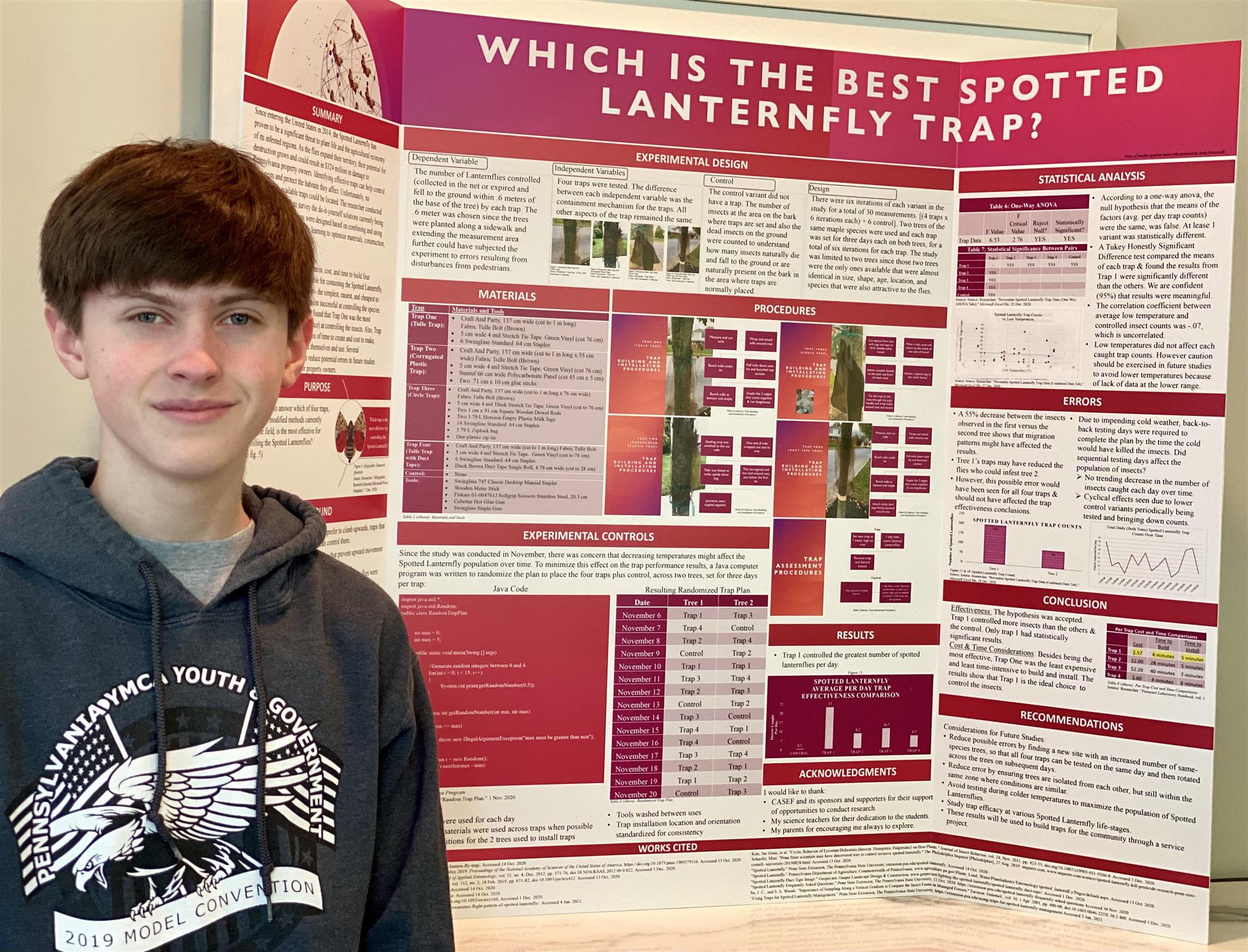 Jack Detwiler has been a member of the Rotary Club of Harrisburg for 27 years and recalls working on or chairing the Club’s Ecology Committee for most of those years. Annually, he has coordinated the Club’s judging and awarding of a prize for students winning the Capital Area Science and Engineering Fair (CASEF).
Jack Detwiler has been a member of the Rotary Club of Harrisburg for 27 years and recalls working on or chairing the Club’s Ecology Committee for most of those years. Annually, he has coordinated the Club’s judging and awarding of a prize for students winning the Capital Area Science and Engineering Fair (CASEF).According to Detwiler, “Our committee members are asked to serve as judges for student entries from area schools. This year we received 15 presentations to review. This year’s judges included President-Elect Matt Staub, Past President Jeff Boswell and me. There was a wide range of topics from 15 candidates.”
CASEF is a nonprofit 501(c)(3) membership organization and a PA EITC Innovative Educational Program initiative. For these competitions, CASEF follows performance standards of the Society for Science and the Public (ISEF) with a goal focused on promoting the understanding and appreciation of science. That organization sees the critical role science and engineering play in our society: to inform, educate, and inspire. CASEF provides a scoring guide to provide consistency of presentation quality.
It is no surprise the 2021 CASEF student competition were virtual. Instead of live presentations this year competitors will submit short videos. Fair award dates in 2021 were March 8-11, 2021. CASEF participants submitted their projects to a centralized web. Detwiler says, “All judging is done blind meaning the judges do not know the names of those submitting a presentation. We are in the Special Award Category at the RCH and we present a $750 check to the student winning in the Senior Division.”
This year’s winner and RCH Grand Champion is Sam Koda a sophomore at Hershey High School for his project to determine which lanternfly traps are more effective and cost efficient. He noted in his presentation, “There are no commercially available traps for these insects, but of the four systems I tested, the most effective can be homemade for just over .50 cents per trap.”
According to Valerie Knowles the CASEF Director, “Recent events confirm that it is very evident that we need to be encouraging young scientists to find solutions to life’s greatest challenges and prepare a healthy and sustainable future.”
Public and private schools in the 41 Central Pennsylvania service area are eligible to register in the CASEF. Senior division grand champions advance to compete in the International Science and Engineering Fair and the highest scoring projects of the junior division enter the Broadcom MASTERS competition.
Detwiler believes he’s seen, “Projects ranging from beetles to stream water studies. Detwiler noted, “Last year's winner of the Rotary Ecology Award was Kathryn Miller, a sophomore at Carlisle HS. She demonstrated how Oxbenzone in sunscreen effects and eventually kills coral polyps. She did this project in the lab with actual coral polyps.
Says Detwiler, “Over the years some of our winners actually did their experiments in various creeks and streams in the Central PA area, such as Madeline Grossman, a senior at Cumberland Valley HS in 2017 with her project, 'It's All "Creek" to me, or Kyle Wise a senior at Carlisle High School with his project, "D-Netting vs. Leaf Bagging; Which Macro Invertebrate Collection is the most accurate."
Most notably he adds, “One of our previous winners was Eric Horstick from East Pennsboro High School. His project was how Moss could be used to temper the effects of Acid Mine Drainage. He credits Rotary with inspiring him in his future studies. He went on to get a PHD and currently works for National Institute of Health.”